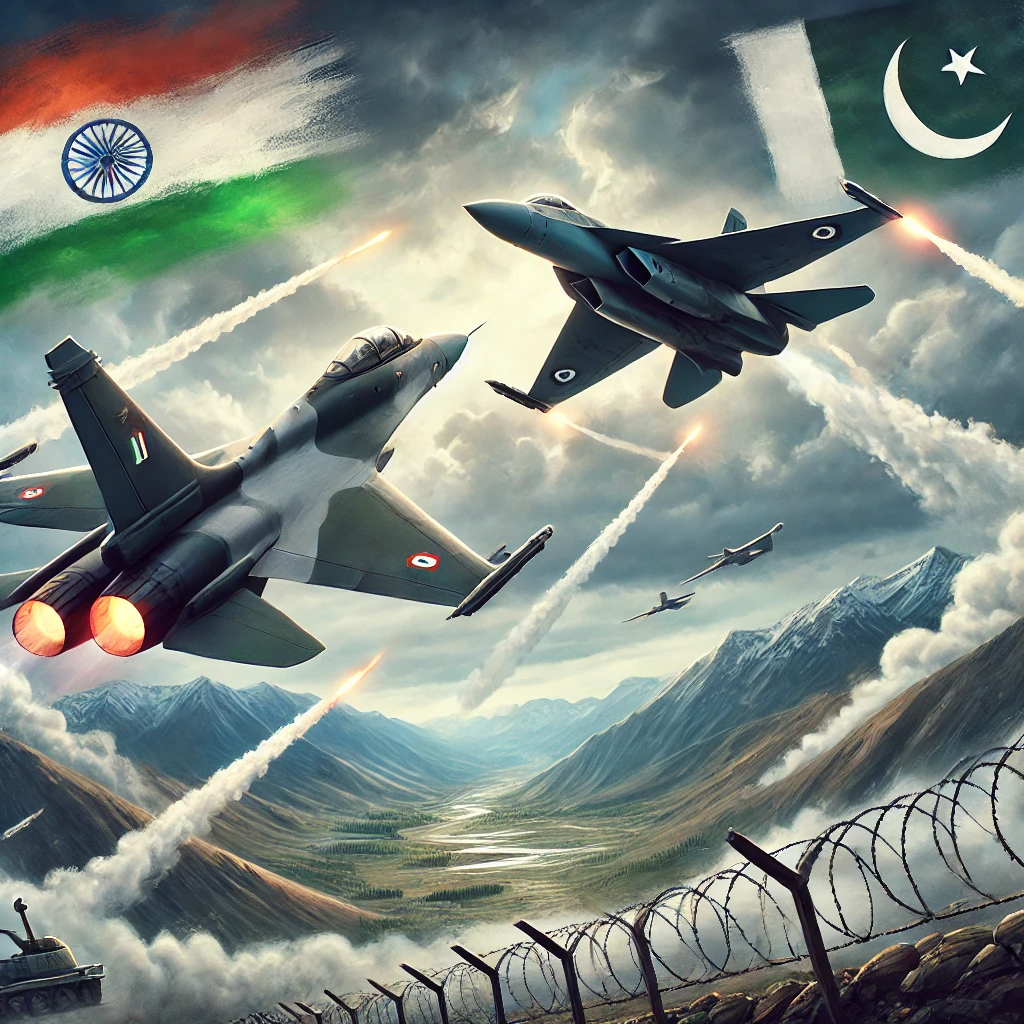Lahore – May 13 – US President Donald Trump has sparked fresh diplomatic tension with his claim that he prevented a potential “nuclear war” between India and Pakistan by threatening trade sanctions. The controversial statement, made during a campaign event, has been firmly rejected by New Delhi, which called the remarks “completely baseless and disconnected from facts.”
Trump stated that during his presidency, he used economic leverage to force both countries to step back from a dangerous standoff, suggesting that nuclear conflict was imminent. “They were ready to go at it—big time,” he said. “I told them, ‘If you don’t stop, there will be serious trade consequences.’ And it stopped.”
READ MORE: India-Pakistan ceasefire holds as flights resume, tensions linger
Indian officials responded swiftly, rejecting Trump’s narrative and emphasizing that India’s national security decisions are based on sovereign considerations, not foreign pressure. “These claims are not only factually incorrect but also undermine the seriousness of the regional dynamics,” said an official from India’s Ministry of External Affairs official.
Modi Issues Stern Warning to Pakistan
As tensions remain high, Indian Prime Minister Narendra Modi warned that any future terrorist attacks originating from Pakistan would be met with stronger retaliation. “Our patience should not be misunderstood. If there is another terrorist strike on our soil, we will respond decisively — and at a time and place of our choosing,” Modi said during a security summit in New Delhi.
The warning comes amid ongoing concerns over cross-border terrorism and follows a period of relative calm after the last major military exchange between the two nations.
Military Dialogue Delayed
Meanwhile, efforts to reduce tensions through military channels hit a snag. The Indian Army announced that scheduled talks with Pakistan’s Director-General of Military Operations (DGMO) had been delayed, citing logistical issues. Though both sides have maintained backchannel communications, formal military talks remain a critical tool for de-escalation.
Analysts say the region remains vulnerable to flare-ups, especially amid election rhetoric, historical mistrust, and an absence of sustained diplomatic engagement.



13 Comments
There are actually plenty of particulars like that to take into consideration. That may be a nice point to deliver up. I provide the thoughts above as general inspiration however clearly there are questions just like the one you bring up where the most important thing shall be working in trustworthy good faith. I don?t know if greatest practices have emerged around things like that, but I am sure that your job is clearly recognized as a fair game. Each girls and boys feel the affect of just a moment’s pleasure, for the rest of their lives.
awesome
Amazing! This blog looks exactly like my old one! It’s on a completely different subject but it has pretty much the same page layout and design. Excellent choice of colors!
of course like your web site however you have to check the spelling on several of your posts. A number of them are rife with spelling problems and I find it very troublesome to tell the reality on the other hand I¦ll certainly come back again.
I’ve been surfing on-line more than 3 hours these days, yet I never found any interesting article like yours. It is beautiful price sufficient for me. Personally, if all webmasters and bloggers made just right content as you did, the net might be much more helpful than ever before.
I as well as my guys happened to be looking at the great tips found on your web page then at once came up with an awful feeling I had not thanked the web site owner for those tips. Those young boys became absolutely glad to study them and now have in fact been making the most of them. Thanks for simply being simply accommodating as well as for considering some impressive areas most people are really needing to be informed on. My very own sincere apologies for not expressing appreciation to earlier.
I loved as much as you will receive carried out right here. The sketch is tasteful, your authored subject matter stylish. nonetheless, you command get bought an impatience over that you wish be delivering the following. unwell unquestionably come more formerly again as exactly the same nearly very often inside case you shield this hike.
Well I definitely enjoyed reading it. This tip offered by you is very useful for good planning.
This is the suitable blog for anyone who needs to seek out out about this topic. You understand so much its virtually arduous to argue with you (not that I really would want…HaHa). You positively put a brand new spin on a subject thats been written about for years. Great stuff, just great!
I do consider all of the concepts you have offered in your post. They are really convincing and can definitely work. Nonetheless, the posts are too brief for novices. Could you please prolong them a bit from next time? Thank you for the post.
F*ckin’ tremendous things here. I am very glad to see your article. Thank you so much and i am looking forward to contact you. Will you please drop me a mail?
When I initially commented I clicked the -Notify me when new feedback are added- checkbox and now every time a comment is added I get four emails with the same comment. Is there any approach you may remove me from that service? Thanks!
My brother recommended I may like this web site. He was totally right. This publish actually made my day. You cann’t imagine simply how much time I had spent for this information! Thank you!